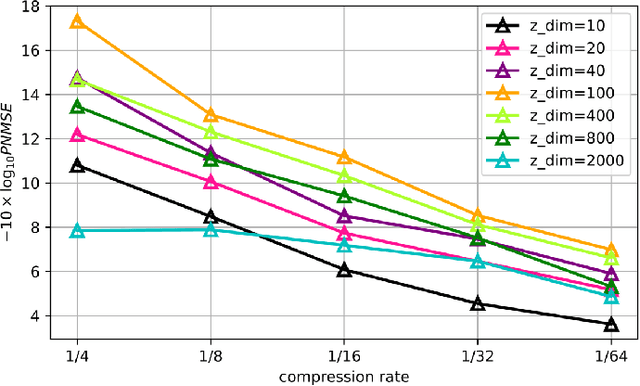Zhilin Du
A CSI Feedback Framework based on Transmitting the Important Values and Generating the Others
Nov 20, 2024Abstract:The application of deep learning (DL)-based channel state information (CSI) feedback frameworks in massive multiple-input multiple-output (MIMO) systems has significantly improved reconstruction accuracy. However, the limited generalization of widely adopted autoencoder-based networks for CSI feedback challenges consistent performance under dynamic wireless channel conditions and varying communication overhead constraints. To enhance the robustness of DL-based CSI feedback across diverse channel scenarios, we propose a novel framework, ITUG, where the user equipment (UE) transmits only a selected portion of critical values in the CSI matrix, while a generative model deployed at the BS reconstructs the remaining values. Specifically, we introduce a scoring algorithm to identify important values based on amplitude and contrast, an encoding algorithm to convert these values into a bit stream for transmission using adaptive bit length and a modified Huffman codebook, and a Transformer-based generative network named TPMVNet to recover the untransmitted values based on the received important values. Experimental results demonstrate that the ITUG framework, equipped with a single TPMVNet, achieves superior reconstruction performance compared to several high-performance autoencoder models across various channel conditions.
Dig-CSI: A Distributed and Generative Model Assisted CSI Feedback Training Framework
Dec 10, 2023



Abstract:The advent of deep learning (DL)-based models has significantly advanced Channel State Information (CSI) feedback mechanisms in wireless communication systems. However, traditional approaches often suffer from high communication overhead and potential privacy risks due to the centralized nature of CSI data processing. To address these challenges, we design a CSI feedback training framework called Dig-CSI, in which the dataset for training the CSI feedback model is produced by the distributed generators uploaded by each user equipment (UE), but not through local data upload. Each UE trains an autoencoder, where the decoder is considered as the distributed generator, with local data to gain reconstruction accuracy and the ability to generate. Experimental results show that Dig-CSI can train a global CSI feedback model with comparable performance to the model trained with classical centralized learning with a much lighter communication overhead.
 Add to Chrome
Add to Chrome Add to Firefox
Add to Firefox Add to Edge
Add to Edge